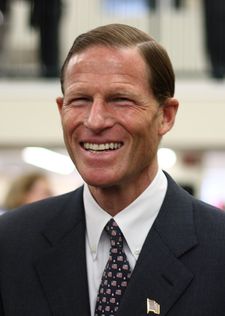
Blumenthal
Three Democratic senators are calling for an investigation into why nearly 10 million phony net neutrality comments were allowed to be included on the record as part of the Republican majority decision to rescind the rules in early 2018.
Sens. Ed Markey (Mass.), Richard Blumenthal (Conn.), and Brian Schatz (Hawaii), jointly signed a letter addressed to the FCC’s Inspector General claiming the net neutrality matter was likely clouded by industry-funded lobbyists and astroturf groups, possible Russian interference, and intransigence by Republican FCC officials unwilling or unable to investigate the phony comments.
The New York Attorney General’s office has made significant progress in its own independent investigation, identifying 14 so-called “groups of interest” that could have subverted the net neutrality debate with fake comments from non-existent individuals, comments from those whose identities had been stolen, duplicate comments, and signatures on questionnaires and petitions that may have misled the public about the definition of net neutrality.
New York subpoenaed industry-friendly special interest, lobbying, and public strategy groups including: Broadband for America, the Center for Individual Freedom, Century Strategies, CQ Roll Call, LCX Digital, Media Bridge, the Taxpayers Protection Alliance and Vertical Strategies.
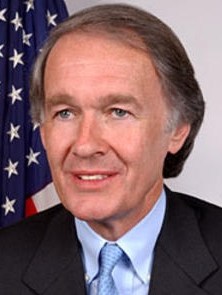
Markey
Freedom of Information requests and the ongoing investigation uncovered multiple historical instances of manipulation and potentially counterfeit comments, according to the senators:
- CQ Roll Call submitted “millions of individual comments” on behalf of a paid client in the broadband privacy docket.
- In 2014, Broadband for America claimed many community organizations, veterans groups, and small businesses were opposed to net neutrality, but in fact these groups had no position on the issue and in some instances claimed they never heard of Broadband for America.
- Media Bridge was involved in assisting a group called American Commitment to flood the net neutrality docket with duplicative comments hostile to net neutrality. Media Bridge sells companies on manipulating the public debate on issues, claiming “if your organization wants to stop ‘showing’ and start dominating the issues, pick up the phone and give Media Bridge a call.”
- The Center for Individual Freedom was responsible for submitting comments that repeated the inflammatory phrase, “unprecedented regulatory power the Obama administration imposed on the internet.” A Wall Street Journal investigation found that 72% of those comments may have been falsely submitted.
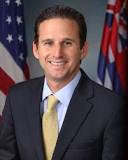
Schatz
“The Commission’s apparent disinterest in investigating fraudulent comments risks undermining public trust in the FCC’s rule-making process. Presently, the only efforts at accountability have been led by the New York State Attorney General and the Government Accountability Office (GAO), prompted by a request from Congress,” the senators’ letter reads. “The status of cooperation with both is unclear, and the FCC has previously resisted requests from the NY AG. Moreover, while journalists have sought to conduct their own research through FOIA requests, the Commission has ignored those requests and withheld documents under dubious exemption claims. Given the seriousness of this issue, the FCC should respond transparently and thoroughly, and fully cooperate with all attempts to investigate fraudulent comments.”
The senators are requesting the FCC’s Inspector General investigate:
- What policies are in place at the FCC to investigate and address fake comments?
- When did the FCC first become aware of the fraudulent comments?
- Was the FCC aware of the sources of these comments, and did they investigate them?
- Is the FCC fully cooperating with the NY Attorney General and GAO and is the agency turning over requested documents? If not, why?
- What is the status of FOIA requests at the FCC. Are they being handled in a timely and responsive manner? Were denials and exemptions appropriate?


 Subscribe
Subscribe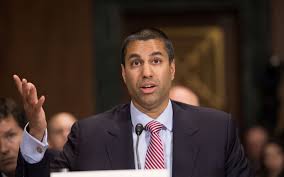
 What began two years ago as the paid streaming service of Turner Classic Movies and grew into a highly respected catalog of 1,800 critically acclaimed films, has been axed by its new owner, AT&T, because it failed to attract a mainstream audience of subscribers.
What began two years ago as the paid streaming service of Turner Classic Movies and grew into a highly respected catalog of 1,800 critically acclaimed films, has been axed by its new owner, AT&T, because it failed to attract a mainstream audience of subscribers. In fact, AT&T has been pressing hard to wring cost savings out of its multi-billion dollar acquisition of Time Warner, Inc., now known as WarnerMedia. AT&T has sent a clear message it will not be in the niche content business.
In fact, AT&T has been pressing hard to wring cost savings out of its multi-billion dollar acquisition of Time Warner, Inc., now known as WarnerMedia. AT&T has sent a clear message it will not be in the niche content business.
 Comcast has passed 30 million customer relationships, mostly from adding new broadband customers that continue to disconnect from phone company DSL service.
Comcast has passed 30 million customer relationships, mostly from adding new broadband customers that continue to disconnect from phone company DSL service.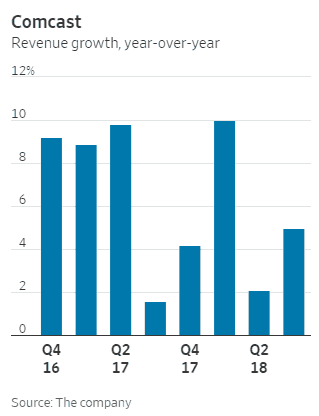 “Our 1 gigabit internet is now available to nearly all of the 58 million homes and businesses passed in our footprint,” Roberts said. “This is the fastest deployment of gigabit speeds to the most locations in the country by anybody.”
“Our 1 gigabit internet is now available to nearly all of the 58 million homes and businesses passed in our footprint,” Roberts said. “This is the fastest deployment of gigabit speeds to the most locations in the country by anybody.” AT&T will
AT&T will 